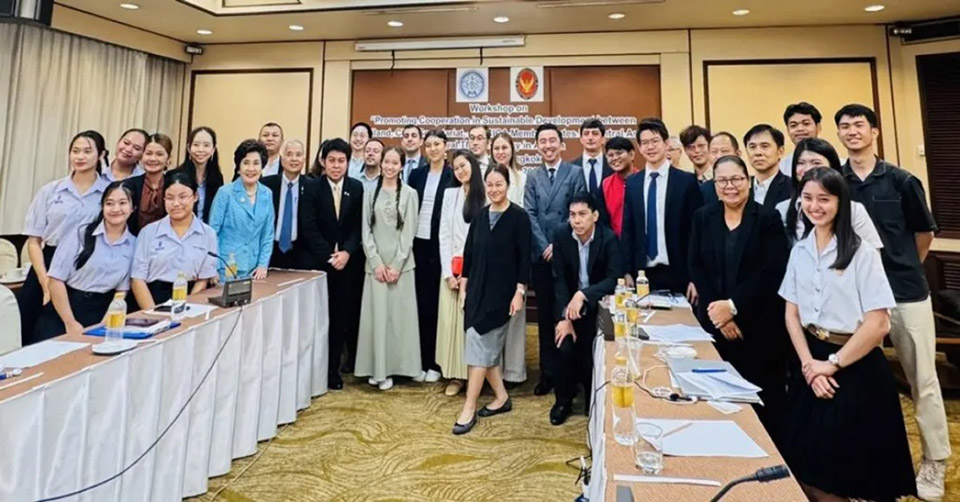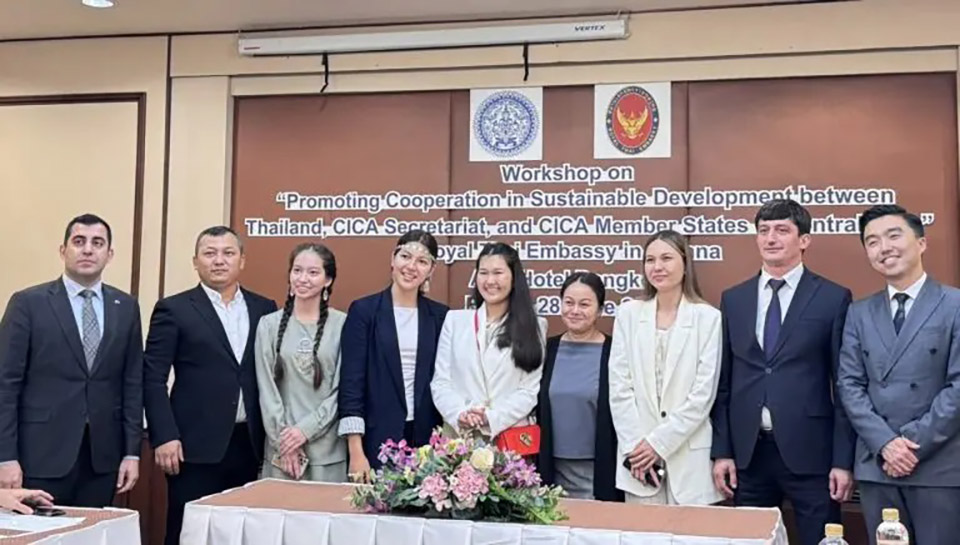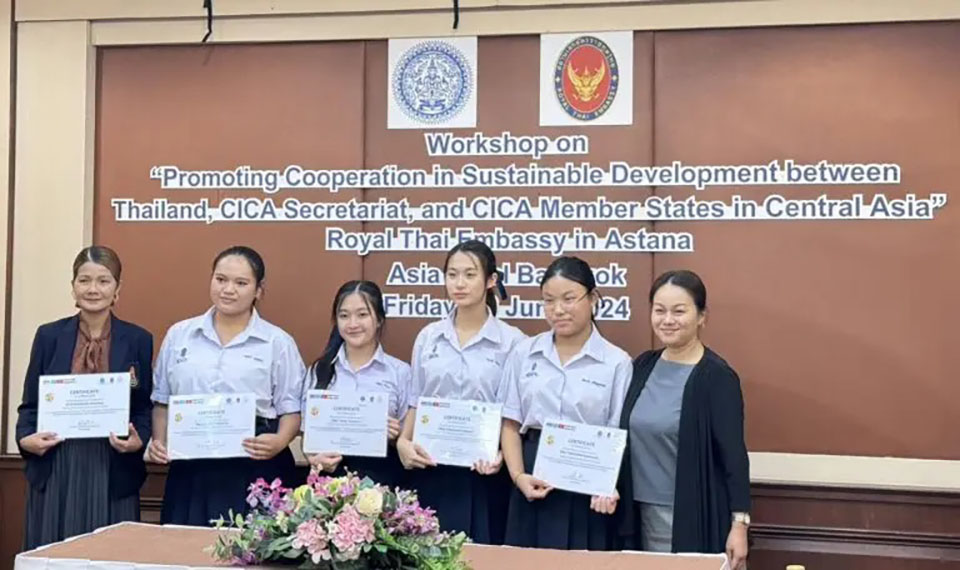
Sustainable development experts from four Central Asian countries – Kazakhstan, Kyrgyzstan, Tajikistan, and Uzbekistan – are visiting Thailand to exchange information and best practices on achieving the Sustainable Development Goals (SDGs).
The experts are led by Dr. Urgur Turan, Environmental Dimension Expert at the Secretariat of the Conference on Interaction and Confidence Building Measures in Asia (CICA), and Mr. Alan Bessen, President of the Earth Foundation, an environmental NGO in Kazakhstan.
The visit is part of collaboration between the Royal Thai Embassy in Astana, Kazakhstan, and the CICA Secretariat.
Learning from Thailand’s Successes
The Central Asian delegates are visiting various projects in Thailand that showcase the country’s success in promoting sustainable development, said Mrs. Orathai Phubunlap Gunaseelan, Counsellor/Deputy Head of Mission, Royal Thai Embassy Astana, Kazakhstan.

These include:
-Community-based tourism (CBT) projects in Ta Kian Tia, Bang Lamung District, which empower local communities to manage their own tourism resources.
-Waste management initiatives that use the BCG Model (Bioeconomy, Circular Economy, Green Economy) to promote sustainable waste management practices.
-Applications of Sufficiency Economy Philosophy (SEP), a development philosophy initiated by His Majesty King Bhumibol Adulyadej, the late King of Thailand, which emphasizes living in harmony with nature and using resources responsibly.
Central Asia’s Sustainable Development Efforts
The Central Asian countries are also making significant strides in sustainable development. For example, Tajikistan is committed to using renewable energy, with 95% of its electricity generated from hydropower. Kazakhstan has adopted a green economy policy with the goal of transitioning to an environmentally friendly economy by 2050. Kyrgyzstan, which relies on water from glaciers, is also facing the issue of global warming due to climate change. The country is accelerating the production of technology experts who will lead the nation toward becoming a green industry.

Sharing Experiences and Building Partnerships
In addition to visiting field projects, the Central Asian delegates are also participating in workshops in Bangkok to share their ideas and green economy policies. They highlighted the strengths of their tourism industries, such as eco-tourism and health tourism. The workshop also included information on food security and the challenges being faced.
Mr. Yerdana Yerzhanuly, a journalist from Khabar 24KZ TV channel in Kazakhstan, highlighted the importance of media in raising public awareness about environmental protection. He said that the Kazakh government provides funding for journalists to report on environmental issues.
At the event, students from Saipanya Rangsit School also had the opportunity to present the school’s concept, which is dedicated to instilling an awareness of sustainable development in its students. Their presentation was well-received by the Central Asian delegates. (TNA)








